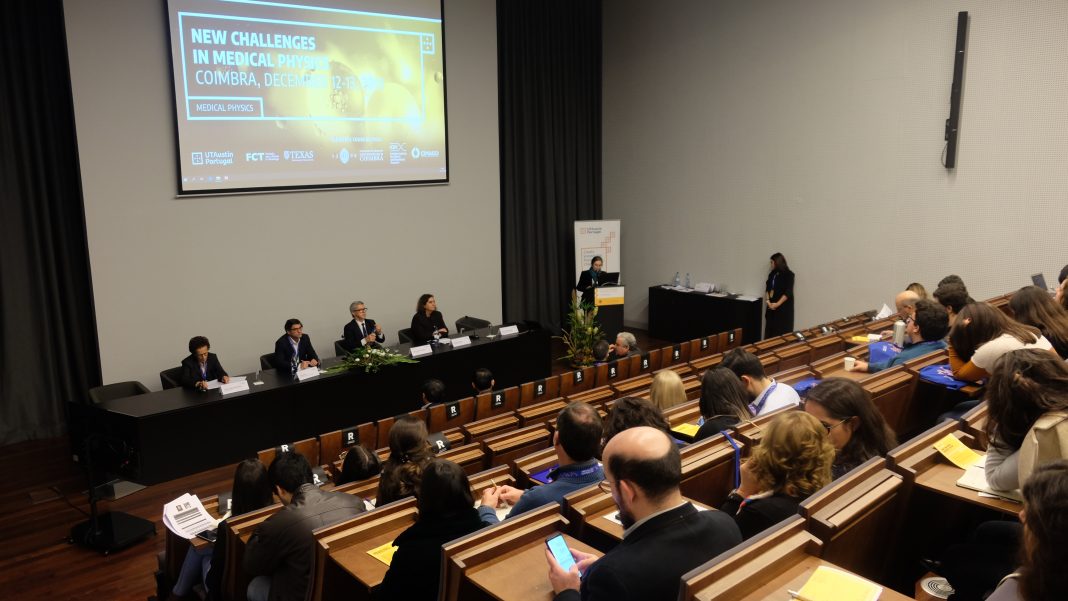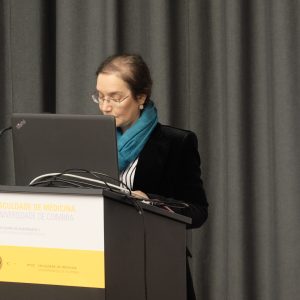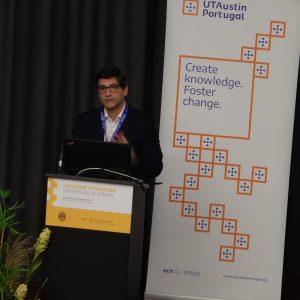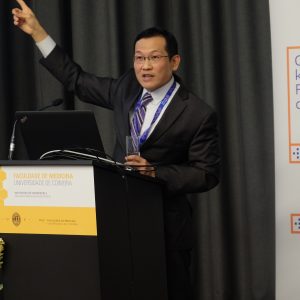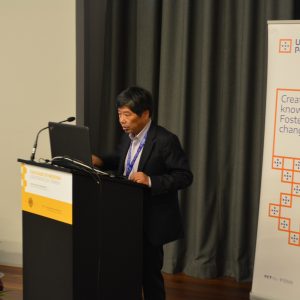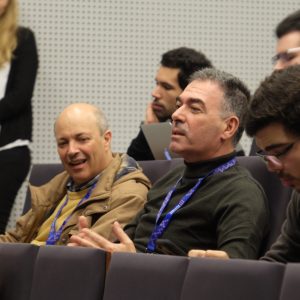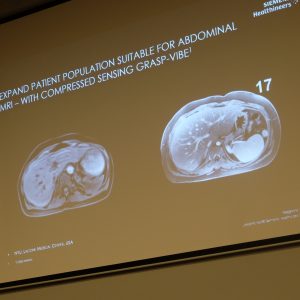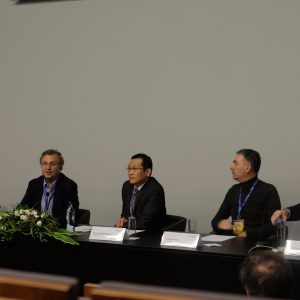The Faculty of Medicine of the University of Coimbra (FMUC) served as the stage for the “New Challenges in Medical Physics” conference – the first event of Medical Physics organized by the UT Austin Portugal Program – bringing together health professionals, faculty, researchers and graduate students, to discuss different topics related to new challenges in Medical Physics, between December 12 and 13.
The one-and-a-half-day event rested on a diverse scientific program coordinated by Maria Filomena Botelho from FMUC’s Institute for Clinical and Biomedical Research (iCBR), and its research strand Environment, Genetics and Oncobiology (CIMAGO), assembling a handful of renowned experts from different institutions and healthcare organizations in Portugal, as well as from MD Anderson Cancer Center (MDACC) and the German Cancer Research Center (DKFZ).
“This area of medical physics comes to show us, more than ever, that science heals. Today, knowledge has the power to heal!”, stated the Minister for Science, Technology and Higher Education, Manuel Heitor, in his closing speech on the first day of the event. And it is with that strong belief in mind that the Austin Portugal Program seeks to foster the establishment of new joint ventures among UT Austin’s Dell Medical School and Cockrell School of Engineering, UT’s MD Anderson Cancer Center, and Portuguese research groups, in the hopes to significantly benefit Portugal in matters of new technologies related to groundbreaking cancer therapy, in particular, proton therapy based solutions.
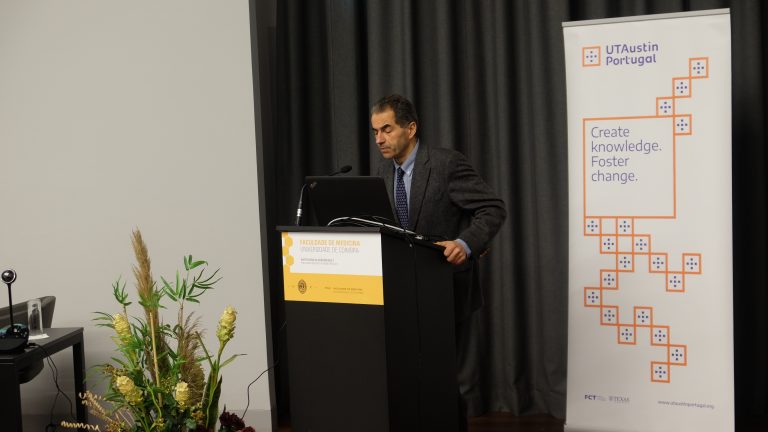
“We need to prepare and further specialize more doctors and health professionals in order to assure the modernization of medicine”, warned the Minister. “Currently, on average, half of patients suffering from cancer die. Our goal is to reach 2030 with a record of three out of four cancer patients having a long-life perspective. It is a massive challenge and for that we need new therapies and technologies based on high particle physics and complementary solutions to radiotherapy and chemotherapy.”
Thus, aligned with the national strategy for the development of high energy particle beam therapies for cancer treatment, state-of-the-art approaches in radiotherapy, targeted radionuclide therapy and proton therapy deserved a special place in the event’s agenda. The invited speakers, from faculty to doctors and physicists, presented case studies and argued clinical applications on ground-breaking cancer therapies, highlighting advanced treatments and the research work behind it in further detail.
The opening ceremony had interventions from Carlos Robalo Cordeiro, director of FMUC, Rui Oliveira, National Co-Director of the UT Austin Portugal Program, Margarida Ornelas, President of the Board of Directors of IPO Coimbra, Catarina Resende Oliveira, President of AICIB and Maria Filomena Botelho, Director of ICBR-CIMAGO.
From MDACC, Steven H. Lin presented his work on “Mitigating radiation inducedlymphopenia to enhance radiation and immunotherapy clinical outcomes”, and X. Ronald Zhu took the pulpit to give his intervention on the “Physical bases of proton therapy”.
From the various research work and clinical applications showcased by the speakers, it is undeniably true that cancer treatments have greatly benefited from interdisciplinary research and technical advances in the last decades. The use of machine learning algorithms in radiation oncology was just one of the examples brought to the fore by some of the invited experts to explain how Big Data is improving the efficiency of precision medicine and, consequently, of innovative targeted, individualized approaches in cancer treatment.
The National Co-Director of the Program, Rui Oliveira, closed the conference on Friday, in gratitude to the ones involved in making the event a success, whilst discussing the impact the UT Austin Portugal Program hopes to continue to have on its stakeholders and audiences, in all the strategic areas it addresses.
The event also included several networking moments, one of which was punctuated with a Fado performance by a group of students from the University of Coimbra.
See the full photo gallery of the event here.
See two short interviews below:

